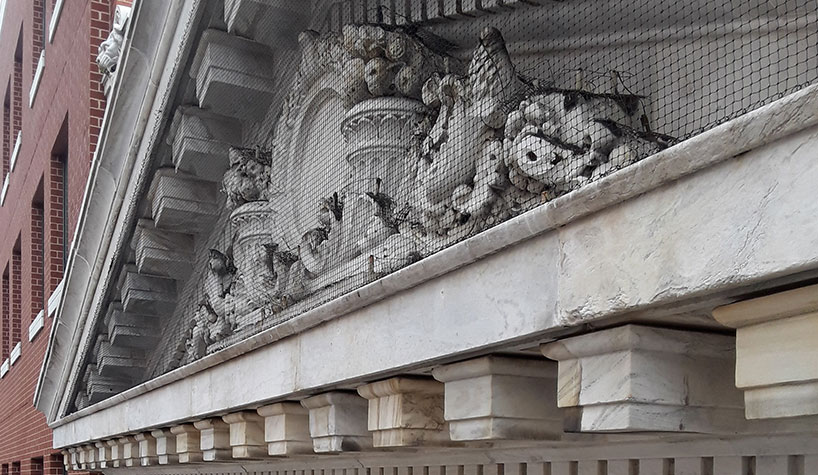READING, PA—How do you control birds at hotels? It’s a messy situation and one that needs to be handled by enlisting a bird management professional.
“Birds can pose myriad issues for hoteliers,” said Kim Lewis, division manager of bird management services for Rentokil Steritech, the third-largest pest management firm in North America. “The presence of birds can disrupt guest experience; compromise air quality and pose health and safety risks; leave behind unsightly messes and create aesthetic concerns; cause structural and equipment damage; and create the need for costly cleanup. They can even cause issues with neighboring properties if birds congregating on a hotel property are causing disturbances or disruptions at nearby businesses or homes.”
In terms of disrupting the guest experience, birds can be a nuisance to guests, especially in outdoor dining areas, where they may swoop down to grab food scraps or grab sugar packets off of tables.
“They are often attracted to pool areas where there is water or are trees for them to roost. They can leave behind droppings which, at a minimum, are unpleasant to look at—and at worst, pose health and safety risks,” said Lewis. “Noise issues can be created by birds to the extent that they disrupt guest stays; for example, grackles will congregate in large groups in trees and squawk at all hours of the day and night. Other species, such as Canadian geese, can be aggressive and have even been known to chase people.”
There’s also the risk of compromised air quality and health and safety concerns. “Bird droppings and nesting materials support ectoparasites and are known to carry up to 60 pathogens that can cause disease in humans,” she said. “When birds nest on or around HVAC equipment, pathogens and airborne particles can get introduced to air intakes and then be circulated through a hotel’s air ventilation system. Additionally, bird droppings, especially on walkways and sidewalks, create safety concerns for customers and staff.”
In addition, hotels face potential structural and equipment damage. The corrosive nature of bird droppings can damage awnings and ruin the paint on vehicles parked below. Don’t forget about the unsightly messes and aesthetic concerns that can reflect poorly on the property.
“Nests stuffed behind signage, droppings streaked down the side of facades or on awnings and canopies, and birds loafing or roosting on structures are just a few of the ways birds can detract from your overall brand image,” she said. “Cleanup and disinfection costs for bird droppings can cost thousands of dollars. Repeated over the course of time, these costs can mount up for a property.”
According to Lewis, many people do not realize that bird management often requires permits and adherence to legislation. “Many bird species are protected by federal, state and even local laws—which makes interfering with their nest or intentionally harming them a criminal offense. For this reason alone, working with an experienced bird-management professional is advised,” she said. “Additionally, because nests and droppings can contain harmful pathogens and ectoparasites that can be transmitted to humans, they should be treated before they are handled to avoid causing illness or infection.”
Here, Lewis outlined what hoteliers should consider when seeking to discourage birds from their properties:
- Locate dumpsters at a distance from structures and be sure that they have well-fitting lids. Birds are often attracted to trash/dumpster areas because they can scavenge them for food.
- In outdoor dining areas, clean up after customers immediately.
- Reduce and remove any standing water on the property—and that includes the rooftop.
- Keep gutters cleaned so that water is free-flowing. Clogged or obstructed gutters can create backups of water, which attract birds for bathing and drinking.
- Screen or enclose HVAC systems to prevent birds from nesting or sheltering on them.
- If geese are a problem because of a pond or water feature, consider putting up a barrier around the water feature.
- Have routine inspections conducted for bird activity.
“Rentokil Steritech has a dedicated bird management division, staffed with teams around the country that are experienced bird management professionals,” she added. “We utilize a wide range of state-of-the-art methods and approaches to humanely manage bird issues and help businesses protect their brands.”

